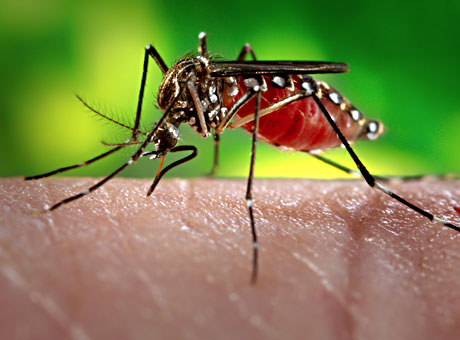
Airborne invasion
Mosquitoes carry arthritis-like virus to U.S.

Every mosquito season brings with it the fear that these annoying insects could arrive carrying a dangerous disease. One such infection has recently been detected in the U.S.
Known as Chikungunya, an African word for “that which bends up,” this mosquito-borne virus causes arthritis-like symptoms. The virus is mainly spread by the tropical Aedes aegypti mosquito and first was identified 60 years ago in eastern Africa. Since then, it has spread across the world.
In 2014, more than 2,000 people in the U.S. developed the infection after traveling abroad, mostly to the Caribbean. That same year, 11 cases of Chikungunya infection were reported among people living in Florida who had not traveled outside the U.S., suggesting that mosquitoes in that state were spreading the virus.
In most patients, the infection causes a fever, rash and severe joint pain. The fever and rash typically subside in seven to 10 days, but symptoms of arthritis may persist in up to 60 percent of patients for a year or longer.
Researchers at Washington University School of Medicine have found that blood tests of patients carrying the Chikungunya virus and those with rheumatoid arthritis can produce similar results. This may lead to the misdiagnosis of some patients with the virus.
The findings underscore the need for doctors to obtain detailed travel and medical histories from patients being evaluated for rheumatoid arthritis. Such details could help distinguish between the two conditions.
— Deborah J. Lenschow, MD, PhD
The global spread of the Chikungunya virus suggests that the disease is likely to provide a diagnostic challenge in the years ahead. Physicians treat rheumatoid arthritis with drugs that suppress the immune system, but it’s not yet known whether that approach will help or harm patients with Chikungunya virus.
“We’re anticipating that Chikungunya virus will spread broadly in the U.S., so it’s important to develop better tools for diagnosis, prevention and treatment,” said Deborah J. Lenschow, MD, PhD, a rheumatologist involved in the research. Researchers here have established an online Chikungunya registry.






